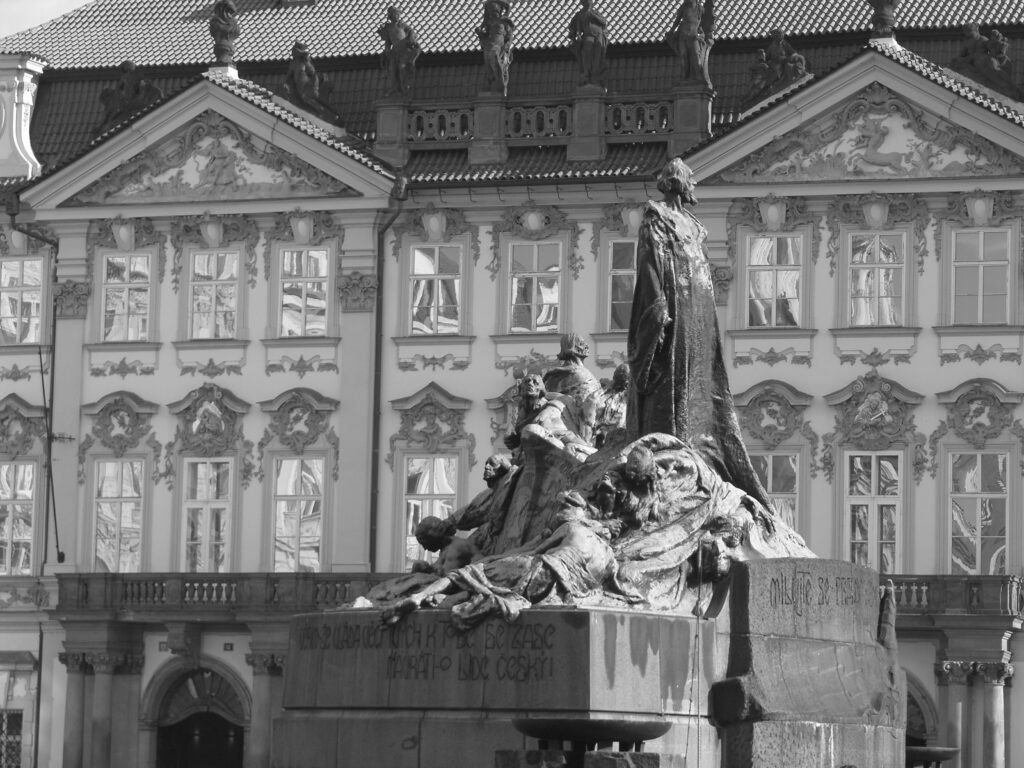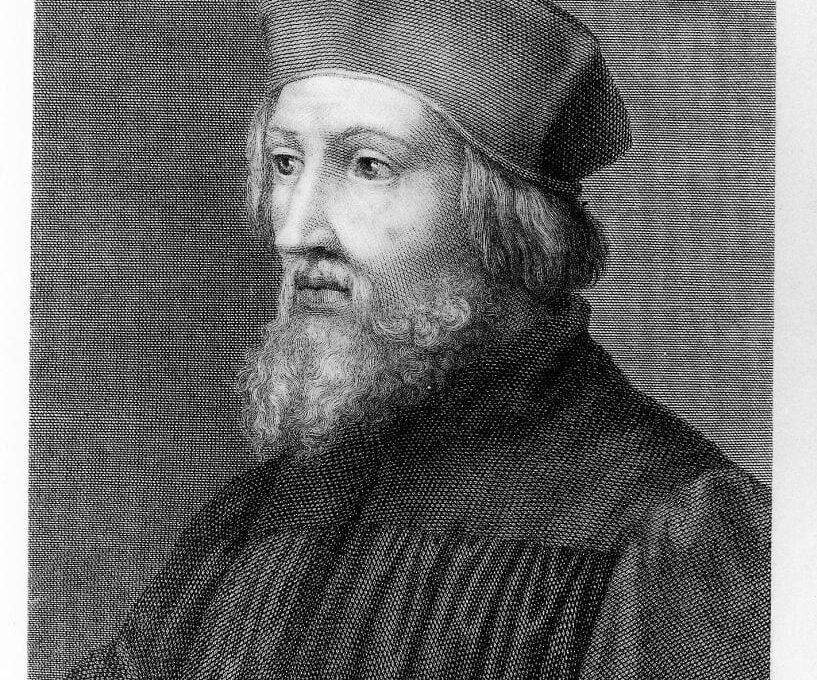Table of contents Show
Jan Hus (15th century), the Czech theologian and reformer is an example of numerous individuals throughout history that have sought justice, truth, and reform by going against the grain of society, often at considerable personal risk.
Jan Hus uncompromising dedication to religious reform, his obstinate rejection of the Catholic Church, and his final sacrifice for his ideals left a lasting influence on world history, especially in relation to the Catholic Church and the wider Protestant Reformation.
On Jan Hus day in Czech republic, people reflect, remember, and learn. During the reformation of religion and religious freedom fights, it reminds Czechs of their profound cultural and historical background. On this national holiday, Jan Hus’s history as a bold reformer who fought up for his ideals is remembered.
Who Was Jan Hus?

Jan Hus was the leading religious reformer in Czech history and a major player in the Bohemian Reformation. His thoughts and deeds were pivotal in the development of the Protestant Reformation and other religious reform movements throughout history.
A bold reformer whose views had a long-lasting effect on Christianity and faith, Jan Hus is remembered for his stand for religious reform.
Hus is an important character in the development of Christianity and the larger narrative of religious reform because his memory continues to inspire people to fight against injustice and corruption. The lasting impression he made on the course of human history is the result of his daring and determination, which has inspired generations of reformers.
Jan Hus’s Beliefs and Criticism
Becoming a priest and giving sermons at Prague’s Bethlehem Chapel marked the beginning of Hus’s rise to prominence as a religious reformer. Here, preaching to the ordinary citizens in their native Czech language, he began a powerful and lasting movement. Several important principles in Hus’s teachings formed the basis of his reformist agenda.Jan Hus beliefs were:
The Power of the Bible
Hus passionately defended the Bible’s status as the highest authority in religious matters. He advocated for the Bible to be translated into the vernacular so that it could be understood by as many people as possible.
Clerical Reform
Jan Hus is known for his criticism of the Catholic faith.He urged for restoration to spiritual purity and service to the people, criticizing the clergy for being morally lax and corrupt. The disillusioned people found solace in his analysis because he got to the crux of the problems plaguing the Church.
Death of Jan Hus
After the Council of Constance summoned Hus to stand by his convictions, he went. But he was taken into custody and tried for heresy. Despite promises of protection, he was found guilty and burned at the stake in 1415.
Jan Hus’s death marks a turning point in the tale of religious reform and strife at the beginning of 15th-century Europe. The ecclesiastical and political climates of Bohemia and Europe were profoundly affected by this event.
Jan Hus Day in the Czech Republic
The Czech Republic celebrates Jan Hus Day, or “Den upálení mistra Jana Husa” on July 6th. Jan Hus was a prominent Czech theologian, reformer, and martyr who actively challenged the authority of the Catholic Church and fought for religious freedom. His birthday, July 6, is celebrated annually as a public holiday in his honor. The celebration honors his legacy in the Czech nation and in the larger context of religious reformation.
Some observance and activities on Jan Hus day include:
Religious ceremonies
Many Czech churches celebrate Jan Hus Day with ceremonies and sermons about his life and ideas. Religious liberty, change, and upholding convictions may be discussed in these services.
Cultural Events
Religious observances are sometimes accompanied by cultural events, seminars, and exhibitions about Jan Hus and the Hussite movement. These events teach people about the Prague’s rich history and significance.
Jan Hus parades and processions
Several cities and towns hold these. Participants can wave flags, wear medieval costumes, and carry Hussite banners representing their values.
Public Speeches
Political leaders and experts may speak about Jan Hus’s influence on Czech past events, Europe, and the future of his beliefs.
Memorial Sites
Several people go to the Jan Hus Monument in Prague’s Old Town Square and the Bethlehem Chapel, where Hus preached,
Educational Programs
Schools teach about Jan Hus and his significance to Czech and European past.
Jan Hus in World History
Jan Hus changed the definition of religious reform in the world history in the following ways:
Legacy of Resistance
Hus’s refusal to submit to clerical authority and his subsequent execution made him a symbol of resistance, paving the way for the Hussite movement and further challenges to the status quo.
Hussite Wars and Reformist Movement
Hus’s supporters, the Hussites, battled for religious and political changes in the Hussite Wars in Bohemia, creating a precedent for the challenge of centralized ecclesiastical authority.
Influence on the Protestant Reformation
Throughout the Protestant Reformation in the sixteenth century, John Hus and the Hussite movement had a tremendous impact on reformers like Martin Luther. Luther recognized Hus’s impact and used his views as a foundation for the Prague Protestant churches Reformation.





